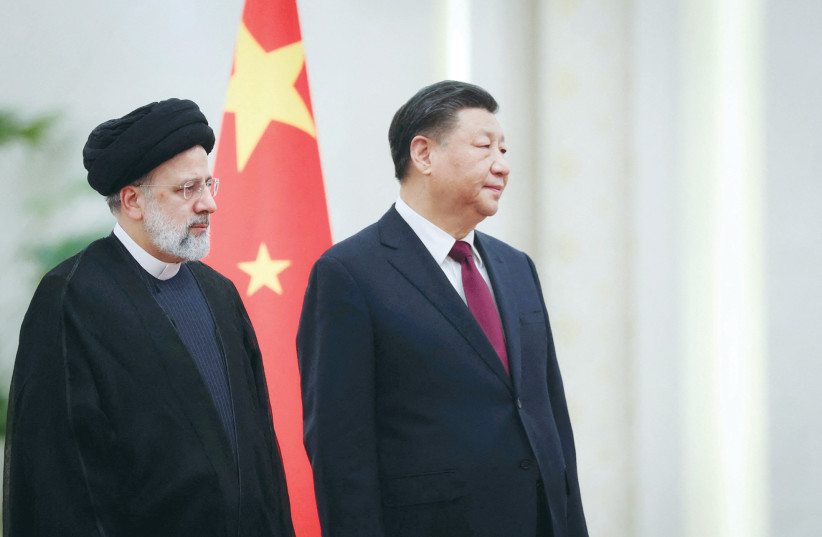Chinese Foreign Minister Wang Yi spoke with his Iranian counterpart, Hossein Amir-Abdollahian, on Sunday and expressed hope for a “wave of reconciliation” in the Middle East. The discussion came after Amir-Abdollahian made a historic trip to Saudi Arabia.
China helped broker Iran-Saudi reconciliation and says it will support “issues concerning core interests” with Iran.
Beijing says it will “continue to support countries in the Middle East in exploring a development path that suits their own national conditions, strengthening communication and dialogue, adhering to unity and self-improvement, and realizing good-neighborliness and friendship.”
Iran thanked China for its role in helping broker reconciliation with Saudi Arabia.
Iran and China also discussed the Iran deal, or Joint Comprehensive Plan of Action (JCPOA). The US left the Iran deal in 2018, and Iran has proceeded to enrich and stockpile uranium. This puts Iran closer to a nuclear weapon.

While the Biden administration had sought a potential return to the deal, the Iranians have balked and have continued to enrich uranium. Iran also wants sanctions relief and to be able to import and export arms.
The 2015 deal allowed for decreasing restrictions on Iran’s ability to import arms after October 2020 and for the expiration of key restrictions on Iran’s missile program in October of 2023. Iran and China have signed a new 25-year deal. Iran is also exporting drones to Russia.
Wang called for “the full and effective implementation of the JCPOA” to resolve the nuclear issue, China’s official Xinhua News Agency reported. The talks between Iran and China were covered by Iranian and Gulf media outlets, including Al-Ain in the UAE.
China's interest in Middle East peace
China’s support for Iran-Saudi ties is part of a larger attempt by Beijing to influence the Middle East. China prefers stability in the region and wants these countries to work together so that trade routes can flourish. This is part of the wider context of Iran’s Belt and Road Initiative and its attempt to influence countries in the Gulf that were historically US partners.
What this means is that China is seeking to knit together these countries and drive its own diplomatic agenda. The recent moves by Iran to send its foreign minister to Saudi Arabia and then brief Beijing on the meeting shows how China has growing influence behind the scenes on the moves by Iran in the region.
Reference to the Iran nuclear issue is also important because Tehran continues to enrich uranium. But it is not clear if China or Russia would welcome Iran seeking to break out from the enrichment and move toward an actual nuclear weapon. That would likely lead to destabilization and potentially harm Iran-Saudi ties.
This is important because Saudi Arabia is also seeking nuclear energy, and reports in the US have suggested that the US wants to see a Saudi-Israel agreement.
